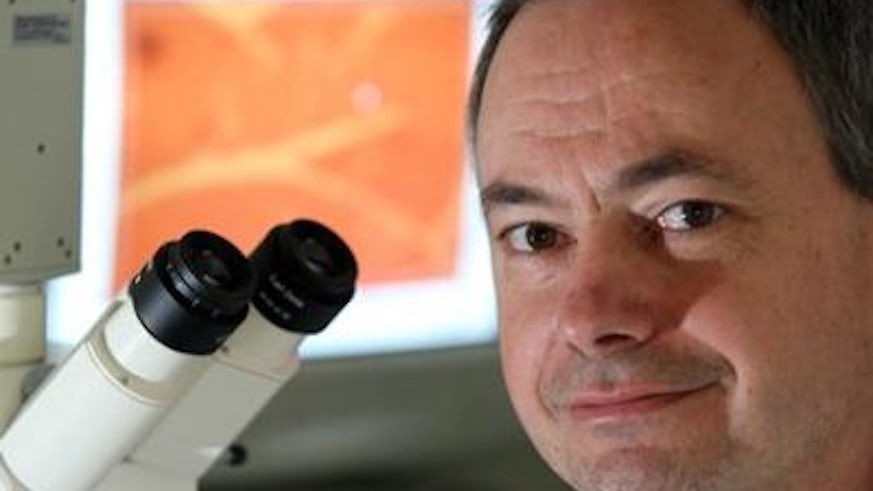Cash boost for cancer research
7 August 2014

A six figure gift from the Jane Hodge Foundation will enable the University's European Cancer Stem Cell Research Institute to invest in a new research fellowship programme, adding significant resource into the specialised field of cancer stem cell research.
Trustees from the Foundation paid the Institute a visit to see first-hand how the work is impacting on the concept that it is cancer stem cells which are responsible for the regrowth and spread of cancerous tumours.
The driving force behind the Institute is to change the current situation of inefficient drug development and a poor understanding of some cancerous tumours.
"Cancer remains one of the major challenges in terms of life expectancy and is recognised as the second largest cause of mortality within the EU," said Professor Alan Clarke, Director of the Institute.
"For some tumours, our understanding of how to treat patients is so woeful that they are currently virtually untreatable. From our improved basic knowledge, the aim will be to develop new therapies which can be shown to make a real difference in the clinic and transform the survival rates for patients suffering from a range of cancer types," he added.
The European Cancer Stem Cell Institute is the only centre in Europe completely focussed on cancer stem cell research. It has gone through a rigorous recruitment exercise to recruit some of the best researchers in the discipline and can boast an international team leading its ground-breaking research.
As a charity, it relies on additional support from societies such as the Jane Hodge Foundation, where one hundred per cent of all donations go directly into its laboratory.
The gift from the Foundation will enable the Institute to attract a Research Fellow and a PhD student to work in the Cardiff-based laboratory over the next four years, along with the technical support needed to conduct such niche research. Research Fellows are early stage career scientists, who are seen as potential leaders in their fields.
The new appointee will work alongside other established scientists who all have individual specialisms within cancer stem cell research, creating a holistic approach to tackling cancer.
Central to the decision to support the work of the Institute was the fact that the donation would go towards something tangible.
Jonathan Hodge, Chair of the Trustees of the Jane Hodge Foundation said: "The Institute's application made it very clear that our support would be going towards a specific activity and that we would be able to see exactly how the donation would be used, instead of going into some invisible pot. After visiting the Institute and hearing first hand from Professor Alan Clarke, we are delighted to be able to fund the work of an additional Research Fellow for the next four years."
"This is an incredibly generous gift," added Professor Clarke. "What it will allow us to achieve in being able to enlist another Research Fellow, will bring our vision of opening up the possibilities of being able to develop tailored therapies or 'personalised medicine' for patients with cancer another step closer. We are grateful to the Jane Hodge Foundation for their support and look forward to sharing our developments with them over the coming years."